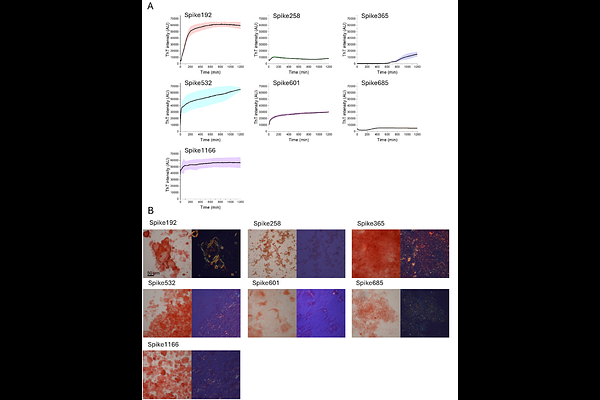SARS-CoV-2 spike protein amyloid fibrils impair fibrin formation and fibrinolysis

SARS-CoV-2 spike protein amyloid fibrils impair fibrin formation and fibrinolysis
Westman, H.; Hammarström, P.; Nyström, S.
AbstractLong COVID, also known as post-acute sequelae of COVID-19 (PASC) from SARS-CoV-2 infection, is a debilitating and persistent disease of multiple systems and organs. WHO reports a total of 778 million registered SARS-CoV-2 infections as of June 2025. Recent studies indicate that as many as 25% of COVID patients will experience at least one symptom of Long COVID. Long COVID pathophysiology is a complex and not fully established process. One prevailing theory is that the formation of fibrin amyloid microclots (fibrinaloids), due to SARS-CoV-2 infection, can induce persistent inflammation and capillary blockage. An association between the amyloidogenic Spike protein of SARS-CoV-2 and impaired fibrinolysis has previously been made when it was observed that fibrin clots formed in the presence of a mixture of amyloid fibrils from the spike protein displayed a resistance to plasmin-mediated lysis. Here we investigated the molecular processes of impaired fibrinolysis using seven amyloidogenic SARS-COV-2 Spike peptides. Five out of seven Spike amyloid fibrils appeared not to substantially interfere with the fibrinogen-fibrin-fibrinolysis process in vitro, while two spike fibrils were active in different ways. Spike601 amyloid fibrils (sequence 601-620) impaired thrombin mediated fibrin formation by binding and sequestering fibrinogen but did not affect fibrinolysis. On contrary fibrin clots formed in the presence of Spike685 amyloid fibrils (sequence 685-701) exhibited a marked resistance to plasmin mediated fibrinolysis. We conclude that Spike685 amyloid fibrils can induce dense fibrin clot networks, as well as incorporate fibrin into aggregated structures that resist fibrinolysis. These results demonstrate how the Spike protein of SARS-CoV-2 could contribute to the formation fibrinolysis-resistant microclots observed in long COVID.